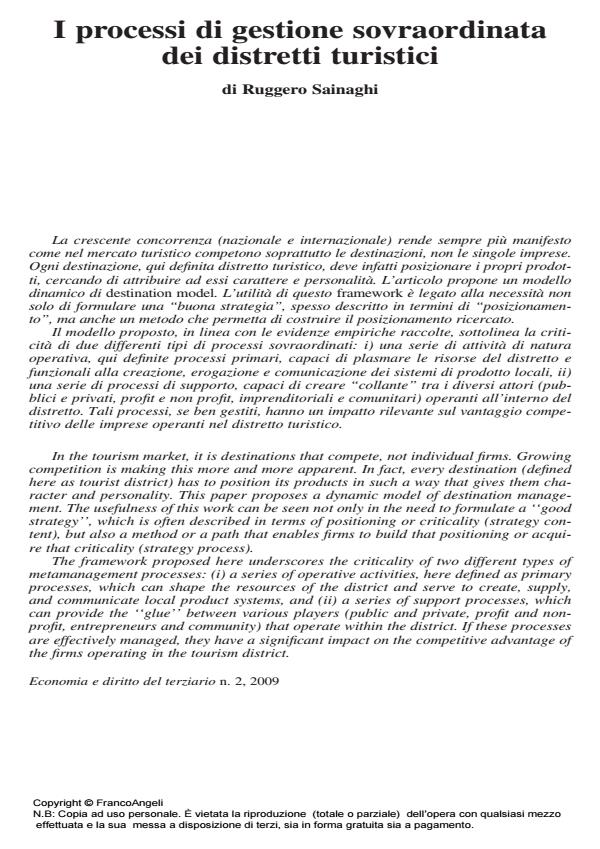I processi di gestione sovraordinata dei distretti turistici
Titolo Rivista ECONOMIA E DIRITTO DEL TERZIARIO
Autori/Curatori Ruggero Sainaghi
Anno di pubblicazione 2010 Fascicolo 2009/2
Lingua Italiano Numero pagine 29 P. 315-343 Dimensione file 1583 KB
DOI 10.3280/ED2009-002006
Il DOI è il codice a barre della proprietà intellettuale: per saperne di più
clicca qui
Qui sotto puoi vedere in anteprima la prima pagina di questo articolo.
Se questo articolo ti interessa, lo puoi acquistare (e scaricare in formato pdf) seguendo le facili indicazioni per acquistare il download credit. Acquista Download Credits per scaricare questo Articolo in formato PDF

FrancoAngeli è membro della Publishers International Linking Association, Inc (PILA)associazione indipendente e non profit per facilitare (attraverso i servizi tecnologici implementati da CrossRef.org) l’accesso degli studiosi ai contenuti digitali nelle pubblicazioni professionali e scientifiche
In the tourism market, it is destinations that compete, not individual firms. Growing competition is making this more and more apparent. In fact, every destination (defined here as tourist district) has to position its products in such a way that gives them character and personality. This paper proposes a dynamic model of destination management. The usefulness of this work can be seen not only in the need to formulate a ‘‘good strategy’’, which is often described in terms of positioning or criticality (strategy content), but also a method or a path that enables firms to build that positioning or acquire that criticality (strategy process). The framework proposed here underscores the criticality of two different types of metamanagement processes: (i) a series of operative activities, here defined as primary processes, which can shape the resources of the district and serve to create, supply, and communicate local product systems, and (ii) a series of support processes, which can provide the ‘‘glue’’ between various players (public and private, profit and nonprofit, entrepreneurs and community) that operate within the district. If these processes are effectively managed, they have a significant impact on the competitive advantage of the firms operating in the tourism district.
Ruggero Sainaghi, I processi di gestione sovraordinata dei distretti turistici in "ECONOMIA E DIRITTO DEL TERZIARIO " 2/2009, pp 315-343, DOI: 10.3280/ED2009-002006